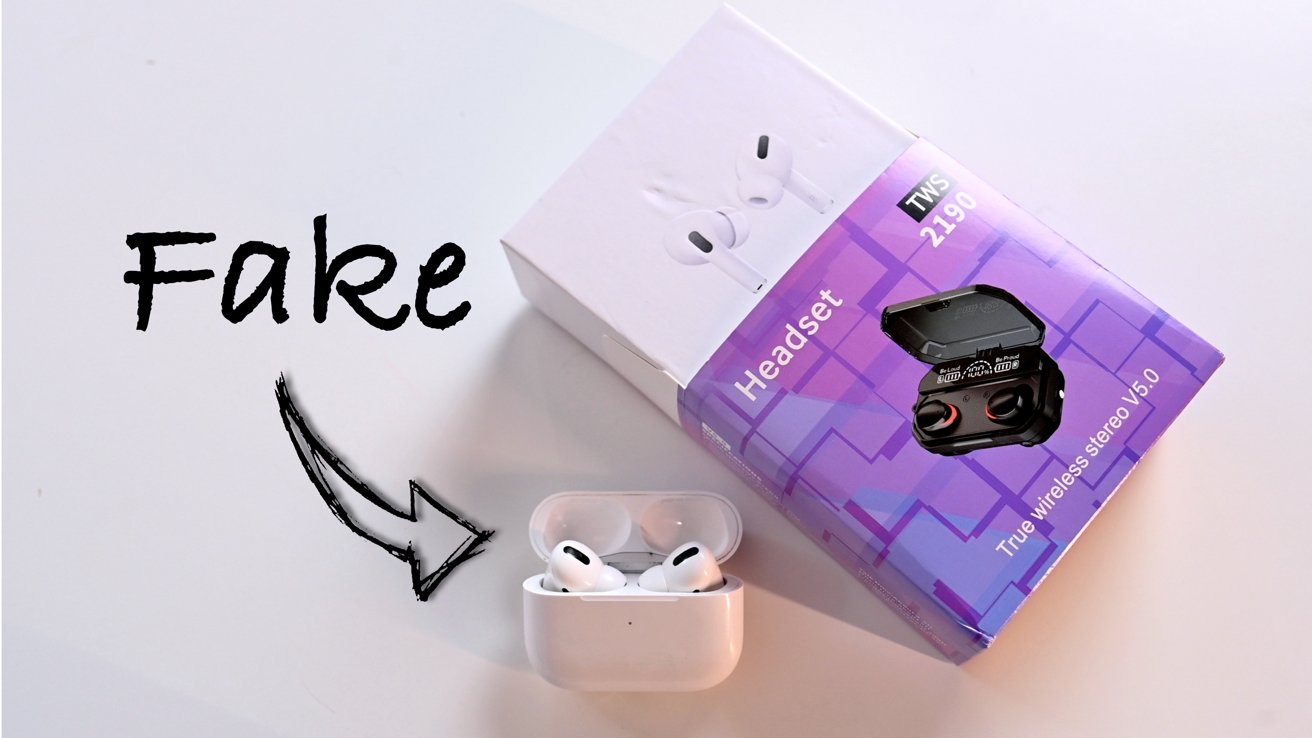A shipment of fake Apple Lightning cables and chargers worth more than $7 million was just stopped at the Port of Houston, highlighting the booming — and dangerous — business of counterfeit tech.
On Tuesday, U.S. Customs and Border Protection (CBP) officials at the Port of Houston seized a massive shipment of counterfeit Apple accessories. The haul included 373,000 USB-A to Lightning cables, with an estimated street value of $7.3 million.
While the cables bore Apple’s markings and trade labeling, officials suspected they weren’t authentic. Apple representatives later confirmed those suspicions: the products were indeed counterfeit.
According to ABC13 Houston, the haul was discovered by the CBP’s Houston Seaport Trade Enforcement Team. The agency targets these kinds of products because “counterfeiters don’t pay taxes.”
It’s not the first time we’ve heard this tale, nor is it the first time Houston law enforcement has thwarted a counterfeiting scheme. In 2024, more than $20,000 worth of iPads, Apple Watches, and AirPods.
This isn’t solely a problem for the U.S., either. It can happen nearly anywhere.
For instance, in County Mayo, western Ireland, where police seized 800 counterfeit devices worth over $170,000. There are so many more stories like this.
And, unfortunately, we’re only likely to see the number increase, not decrease.
Expect to see more
Counterfeit tech is hardly a new problem. In 2022, CBP seized nearly 21,000 shipments containing 25 million goods that violated intellectual property rights, worth an astounding $3 billion. Consumer tech made up 3.7%, or $111 million.
While not specific to Apple, it does highlight a growing problem. One that is likely to increase, rather than decrease, in the coming years.
As the trade war between China and the U.S. grinds on with no end in sight, it’s almost impossible to figure out on a day-to-day basis which tariffs apply to which countries, to which products, or in which direction. This uncertainty is a powerful driving force behind black market trends — especially when it comes to counterfeiting.
Or smuggling legit products across borders.
It’s not worth the risk
Maybe think the worst thing that could happen when buying a counterfeit good is that you’d get a fake product for real money. Unfortunately, that’s probably the best outcome.
The truth of the matter is, counterfeit goods are often very, very poorly made. Say you buy a counterfeit charger for your MacBook Air.
It’s unlikely that a counterfeit product has much, if any, safety features. You could easily fry your $1,000 computer, or worse — it could lead to electrocution or fire hazards.
Maybe you purchase a counterfeit iPhone or MacBook; there’s always a risk that you wind up with a very, very convincing fake. One Redditor purchased what they thought was an iPhone 14 Pro Max, only to find out it was an Android device riddled with backdoors.
Considering how much of your personal data is entered into a smartphone or a laptop daily, it’s unwise to trust a too-good-to-be-true price. All it takes is one slip-up for a malicious actor to do a surprising amount of damage.
And yes, you’ll probably also lose a lot of money in the deal. Those in the business of selling counterfeits aren’t exactly known for accepting returns, after all.
What you can do to protect yourself
As is always the case, the best offense is a good defense. But, it’s likely you already knew that.
Still, it bears repeating: Buy from Apple or Apple-vetted sources. Yes, even if tariffs increase prices, and they likely will at some point.
It’s always smart to buy directly from Apple, either online or at an Apple Store. Major retailers, such as Best Buy, Target, and Walmart, or carriers like T-Mobile, Verizon, and AT&T are vetted Apple Authorized Resellers.
There are plenty of trusted brands that make accessories for your Apple gear. Buying directly from Apple, or buying its products at a vetted retailer, ensures you get exactly what you paid for.
FaceBook marketplace and eBay are always going to be a gamble. Doubly so if you’re buying gear from smaller sellers with low sale numbers or someone who seems a little too eager to get rid of a device.
Exercise caution when buying from Amazon, too. Especially if you stumble across deals that seem too good to be true.
As always: keep your eyes peeled. Check packaging for spelling errors, ensure that devices start up smoothly without any odd behavior, and be cautious of anything that doesn’t seem right. If you have experience with Apple products, like most of you reading this article, you’ll likely be able to tell when something feels off.
Maybe that iPhone in the trunk of that guy’s car at the supermarket is legit, and maybe it isn’t. Maybe that guy who’s buying iPhones in Canada and bringing them across the border and selling at a discount has a product that’ll be supported, and maybe it won’t.
I’m probably not telling you anything you didn’t already know. However, you also probably have a fair amount of less-than-tech-savvy people in your life.
Do them — and yourself, if you’re the resident tech support for family and friends — a favor. Make sure they buy from reputable sources and steer them in the right direction if they ask for advice.
After all, the best way to handle a problem is to prevent it from happening in the first place.





